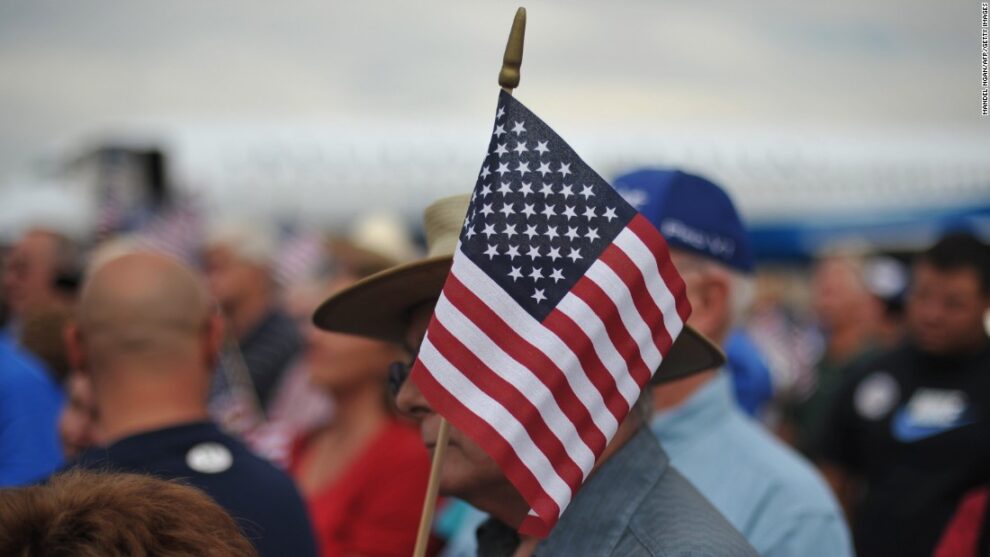The annual Best Countries rankings from U.S. News may inspire hopeful chants of “USA!” among American readers, who in turn may be disappointed to learn the United States finished at No. 5 this year instead of No. 1, dropping a spot from last year.
The result, still a top-tier ranking, comes from a perception-based analysis of data collected through a survey of more than 17,000 respondents from 36 nations all over the world. Essentially – and unsurprisingly – perceptions of the U.S. can vary by country.
But what happens when we slice the data by the responses of Americans only? Spoiler alert: The U.S. still doesn’t rise to No. 1, but it does get a nice bump.
These Are the Top 10 Best Countries in the World, According to Americans:
- United Kingdom (+8)
- New Zealand (+6)
- United States (+2)
- Australia (0)
- Sweden (-2)
- Canada (-4)
- Japan (-1)
- France (+4)
- Switzerland (-8)
- Germany (-3)
*Figures in parentheses show the difference in ranking compared with results based on the responses of global survey respondents
Instead of the United States, the United Kingdom holds the top spot for American respondents, who viewed their country’s former colonizer with even more admiration than the global set of respondents, with the U.K.’s overall rank improving by eight positions. New Zealand, famed for being picturesque, came in second among U.S. survey-takers, with a six-spot upswing of its own.
Meanwhile, Switzerland – the No. 1 nation according to global respondents for the sixth time in eight years – gets dinged eight spots in the rankings based on survey responses from the U.S.
Outside the top countries, Myanmar (+27 spots) and Ukraine (+22) also saw large upswings when viewed by Americans compared with the world at large. Countries that comparatively fell include Bahrain (-24 spots), Jordan (-19) and Russia (-15).
The Best Countries survey gathered perceptions about 87 nations across 73 descriptive attributes, and Americans did view the U.S. as No. 1 for the attributes entrepreneurial, having strong consumer brands and providing easy access to capital, as did the world.
Americans also gave their home top billing for having culturally significant entertainment, being a place they would live, having a well-developed legal framework, being a leader and caring about animal rights – even though the world overall did not feel the same way.

When not considering itself king of the hill, respondents living in the U.S. still gave their country higher rankings for the majority of the 73 attributes involved in the Best Countries project compared with the assessments of the world overall. In particular, Americans considered their home much more affordable (+38 spots) and scenic (+37 spots) than global respondents gave it credit for, and also viewed the country in a better light for racial equity (+27 spots) and caring about the environment (+21 spots).
Not rising all the way to the top in the overall rankings could be due to Americans being critical of themselves in certain areas. For instance, the world viewed the U.S. as No. 1 for having strong international alliances and being dynamic, yet Americans didn’t see themselves quite so strongly, ranking their country No. 3 and No. 6, respectively.
A lower self-image was observed in several dozen other attributes as well, with the U.S. falling in rank when assessed by its residents compared with the full set of global respondents. Notably, Americans felt like their country was hardly transparent when it came to government practices (-61 spots) and business practices (-39 spots), and also viewed themselves lower when it came to having a favorable tax environment (-27 spots) and income equality (-21 spots).
Separate from the country-attribute perceptions that drive the rankings, survey respondents also were asked how strongly they personally agreed or disagreed with a set of more than two dozen statements that covered topics ranging from the economy and global threats to media and immigration.
Comparing the opinions of all U.S. survey-takers to the opinions of the world overall, there was consensus on some matters. At least 85% of respondents in both groups agreed to some extent with the following statements:
- Mental health care is just as important as physical health care.
- Women should be entitled to the same rights as men.
- My country should teach the history of its past, even if it paints it in a negative light.
- A free press is vital to a thriving society.
- Democracy is the best form of government.
Agreement elsewhere was more polarized, however, including on statements that assessed whether some of the most powerful countries are threats to the world. U.S. respondents were more likely than the world to say China and Russia posed a global threat, for instance, and less likely to view the U.S. itself as a threat.
For some statements, political leaning within the U.S. had a noticeable effect, with the level of agreement rising or falling as Americans swayed one way or the other. For example, increasingly liberal respondents were more likely to agree to some extent with the statement that “a country is stronger when it is more racially and ethnically diverse,” while increasingly conservative respondents in general were more likely to agree to some extent with the statement, “My country should focus on itself before helping other countries.”
American conservatives and liberals also didn’t quite see eye to eye on statements surrounding climate change, immigration and universal health care, among others. Among the attributes that drive the rankings, those who leaned either way viewed the country’s tax environment less favorably than the world did, though liberals viewed it less favorably than conservatives. Both groups also considered America’s government practices to be less transparent than the world did, with conservatives perceiving it as less transparent than liberals.
Still, the two groups did have similar responses on some matters. On both sides of the aisle, about 85% or more agreed with those same statements that much of the world agreed with – regarding a free press, the rights of women and the superiority of democracy, among others – representing some amount of universal common ground. And both sides were fairly evenly undecided on whether social media has been positive for society.
Source : US News
















